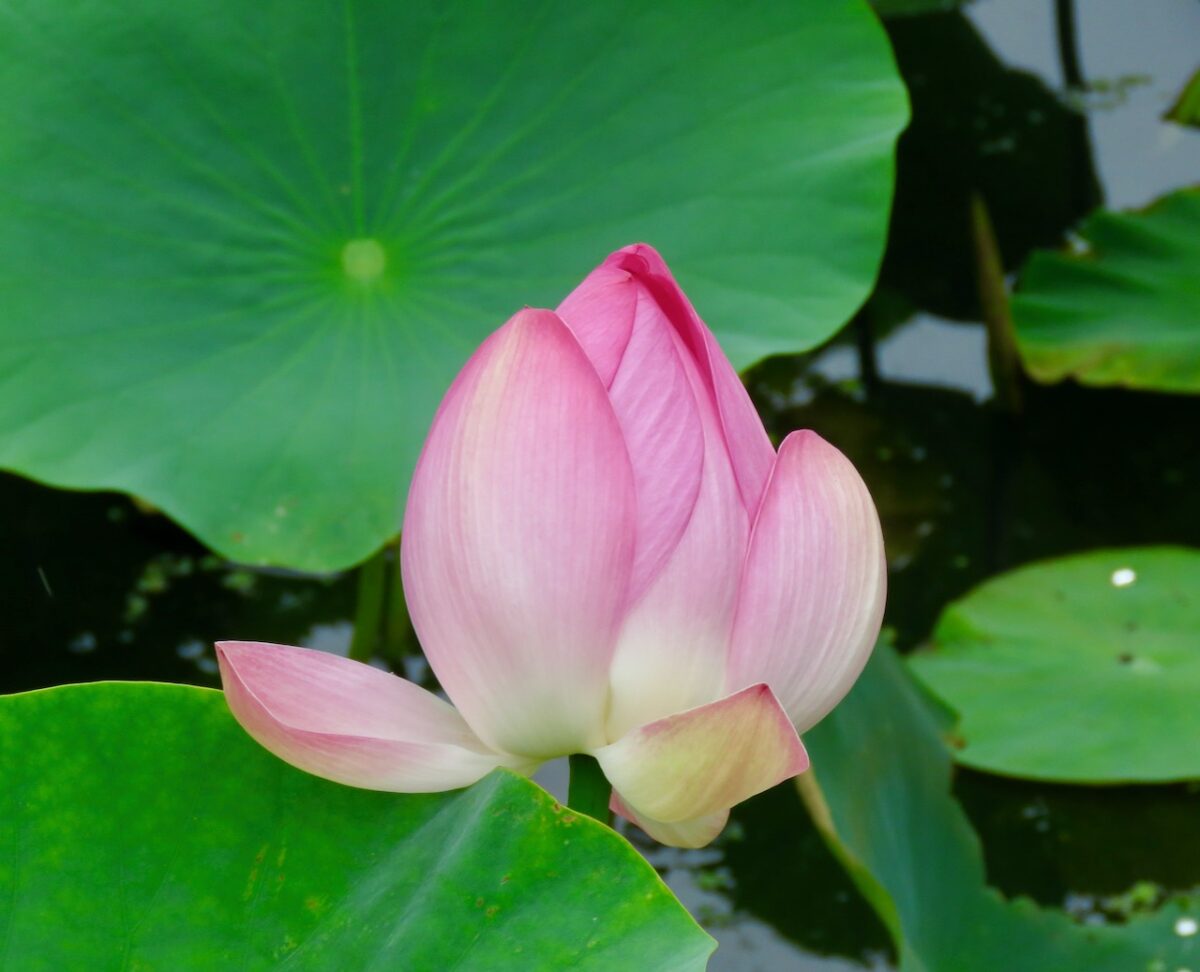
These Lotus flowers in the ponds of Kenilworth Park and Aquatic Gardens are from famous Lotus seeds germinated in the 1950s after being under a dry lake bed in China for 800 years, according to the National Park Service: Glynn Wilson
Secret Vistas –
By Glynn Wilson –
WASHINGTON, D.C. — If you find yourself in the Washington region and happen to be traveling down the Baltimore-Washington Parkway to see all the monuments and museums in the nation’s capital city, you might notice an exit sign for Kenilworth Park and Aquatic Gardens.
If you have the time, and you are lucky enough in your timing to be in the metro area from July 15-22, you might check out the Lotus and Water Lily Festival, when the famous lotus flowers and water lilies are in bloom.
The festival features eight days of cultural performances, classes, ranger programs and each day will feature a different theme and highlight the different perspectives that make the gardens so beautiful and interesting.
See more: NPS: 2023 Lotus and Water Lily Festival Events Schedule
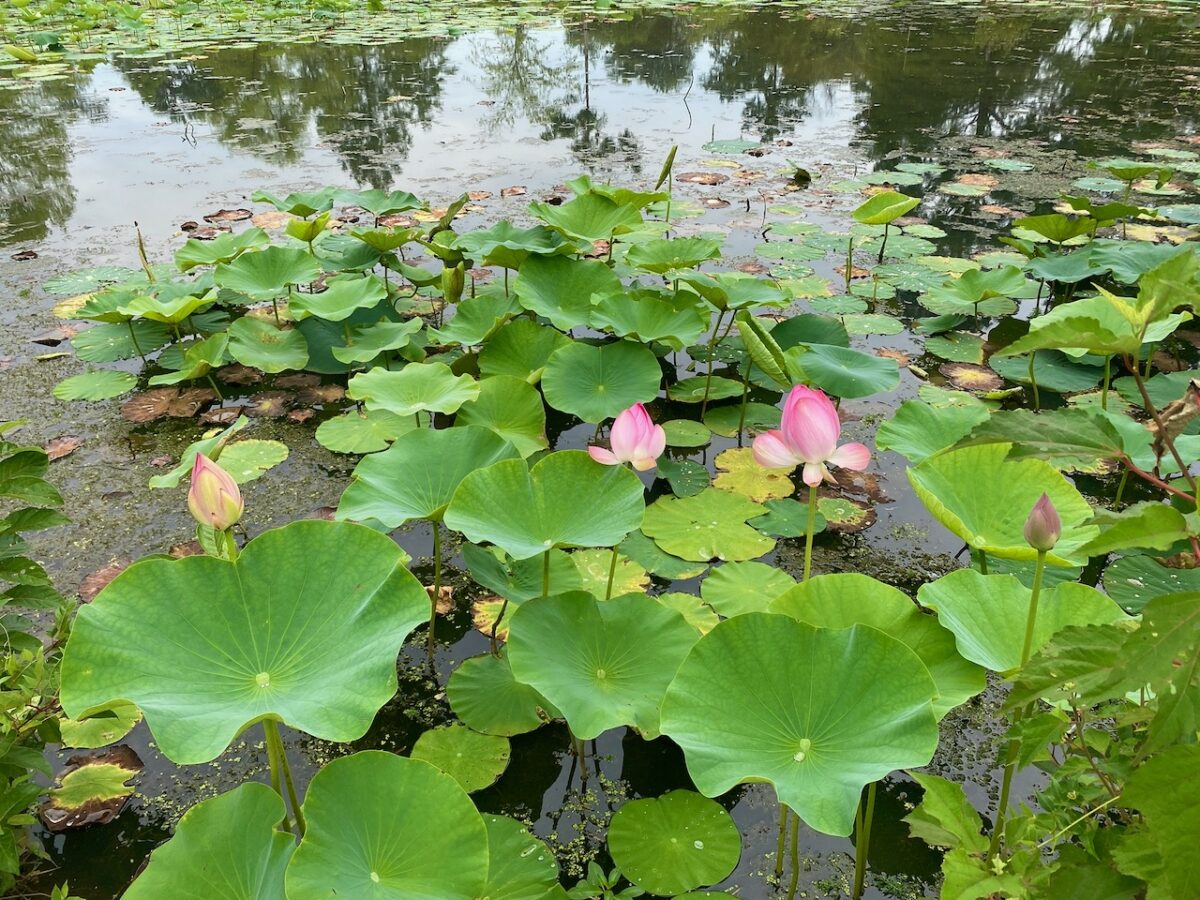
These Lotus flowers in the ponds of Kenilworth Park and Aquatic Gardens are from famous Lotus seeds germinated in the 1950s after being under a dry lake bed in China for 800 years, according to the National Park Service: Glynn Wilson
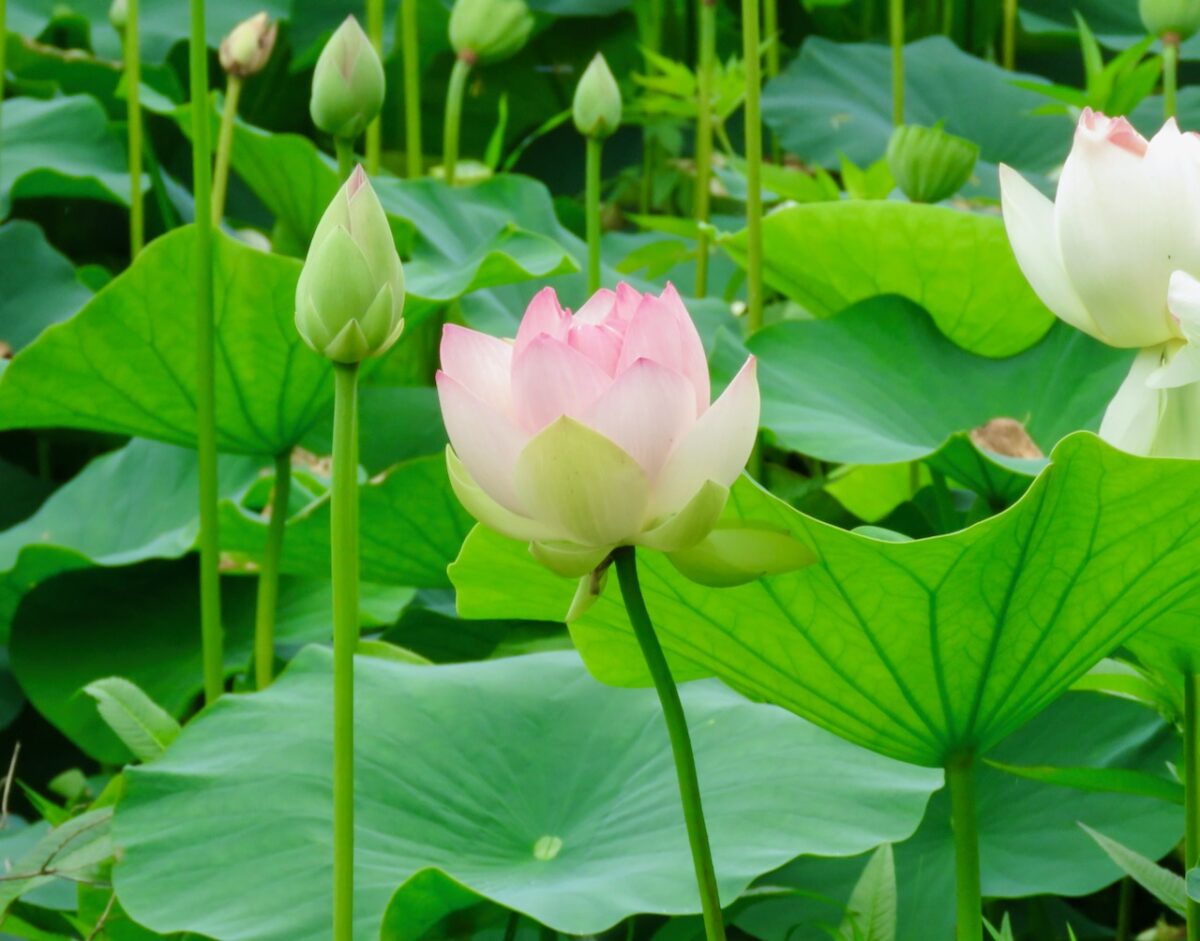
These Lotus flowers in the ponds of Kenilworth Park and Aquatic Gardens are from famous Lotus seeds germinated in the 1950s after being under a dry lake bed in China for 800 years, according to the National Park Service: Glynn Wilson
Birding
But it’s not just the beautiful flowers that attracts visitors with expensive cameras and big lenses. The park is also known for bird watching and bird photography.
I managed to spend part of a hot and humid day there on Sunday, July 2, and got lucky enough to photograph an adult migratory Eastern Kingbird [Tyrannus tyrannus] feeding chicks in a nest by the boardwalk not far from the Anacostia River.
During the summer in North America, kingbirds eat mostly flying insects and maintain a breeding territory that it defends vigorously against other birds. It migrates south in the winter and along the Amazon, it has a completely different lifestyle: it travels in flocks and eats fruit.
Parent Eastern Kingbirds feed their young for about seven weeks. Because of this relatively long period of dependence, a pair generally raises only one brood of young per nesting season, according to the Cornell University online bird guide.
“It’s not called a kingbird for nothing,” scientists say. “The Eastern Kingbird has a crown of yellow, orange, or red feathers on its head, but the crown is usually concealed. When it encounters a potential predator the kingbird may simultaneously raise its bright crown patch, stretch its beak wide open to reveal a red gape, and dive-bomb the intruder.
“The scientific name Tyrannus means “tyrant, despot, or king,” referring to the aggression kingbirds exhibit with each other and with other species. When defending their nests they will attack much larger predators like hawks, crows and squirrels. They have been known to knock unsuspecting Blue Jays out of trees.”
Kingbirds are “passerines,” a taxonomic group commonly referred to as perching birds or songbirds.
I also ran across something the local birders thought was an American Bittern [Botaurus lentiginosus], but it appears to be a Green Heron instead [Butorides virescens], according to the Cornell online Bird Guide.
The Green Heron is a dark, stocky bird hunched on slender yellow legs at the water’s edge, often hidden behind a tangle of leaves. It does look a little bit like the bittern, especially juveniles. Seen up close, it is a striking bird with a velvet-green back, rich chestnut body, and a dark cap often raised into a short crest. These small herons crouch patiently to surprise fish with a snatch of their daggerlike bill. They sometimes lure in fish using small items such as twigs or insects as bait.
Green Herons sometimes pay visits to ornamental fish ponds, like these in the aquatic gardens. It is part of a complex of small herons that sometimes are considered one species. When lumped together, they are called Green-backed Herons. When split, they are the Green Heron, the widespread Striated Heron, and the Galapagos Heron.
More Photos
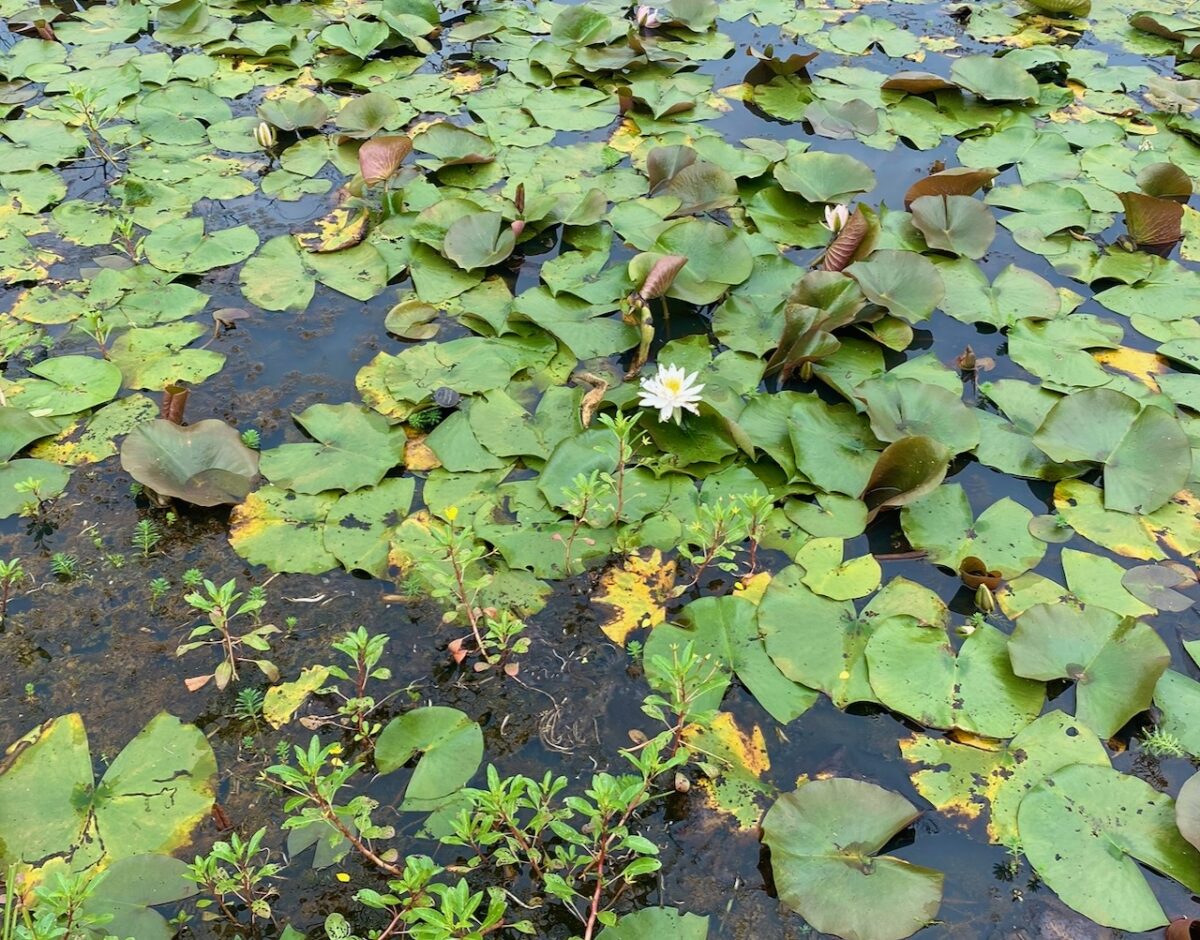
The tropical lilies, with their more delicate roots, only bloom from mid-June through early October, but peak in July and August. The Victoria water lily blooms in August but its expansive pads can be seen through September, and often even into October: Glynn Wilson
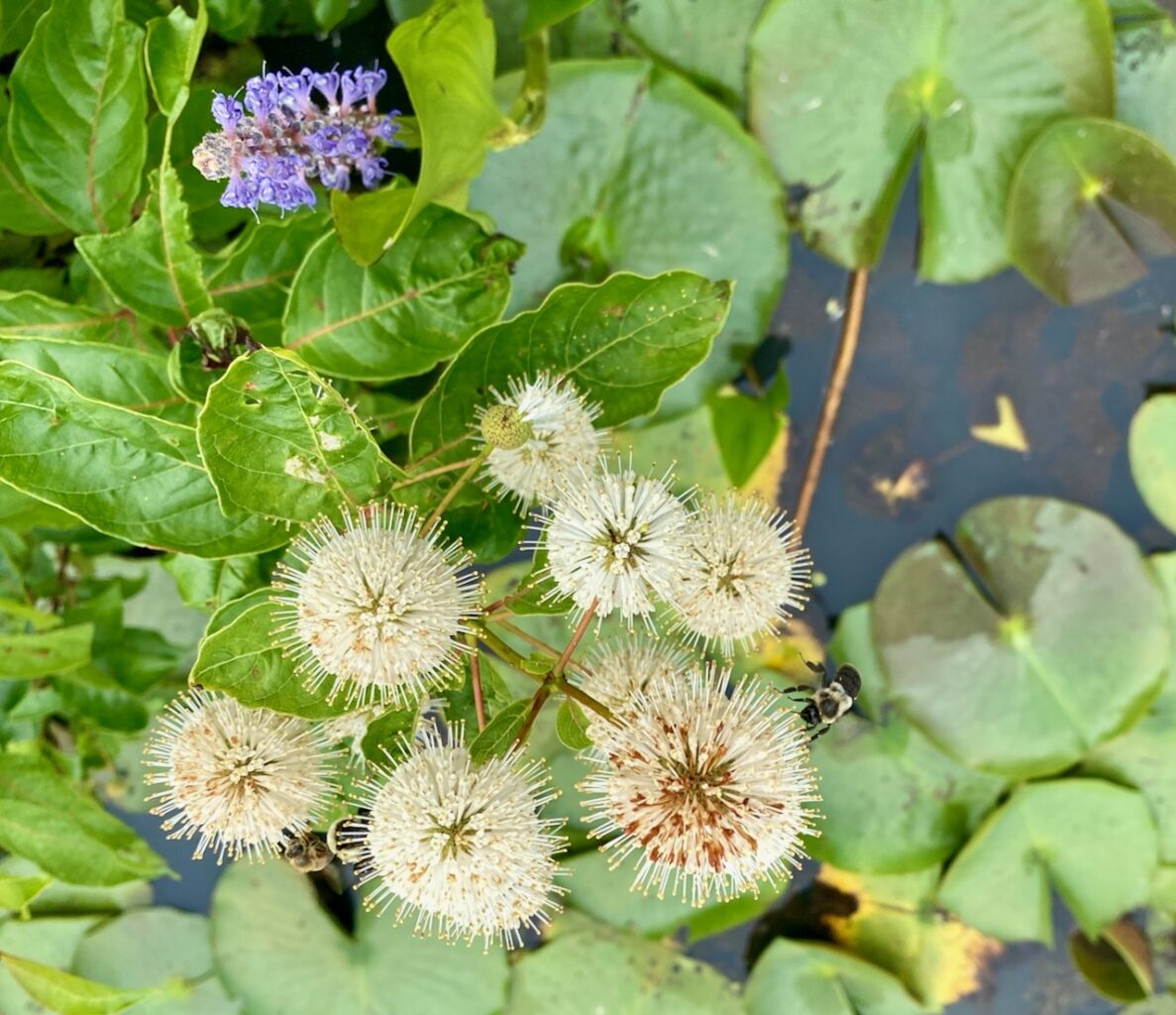
There are other beautiful plants and flowers in the Kenilworth Park and Aquatic Gardens, including this Buttonbush or Button Willow, also called Honey Bells or Honey Balls [Cephalanthus occidentalis]: Glynn Wilson
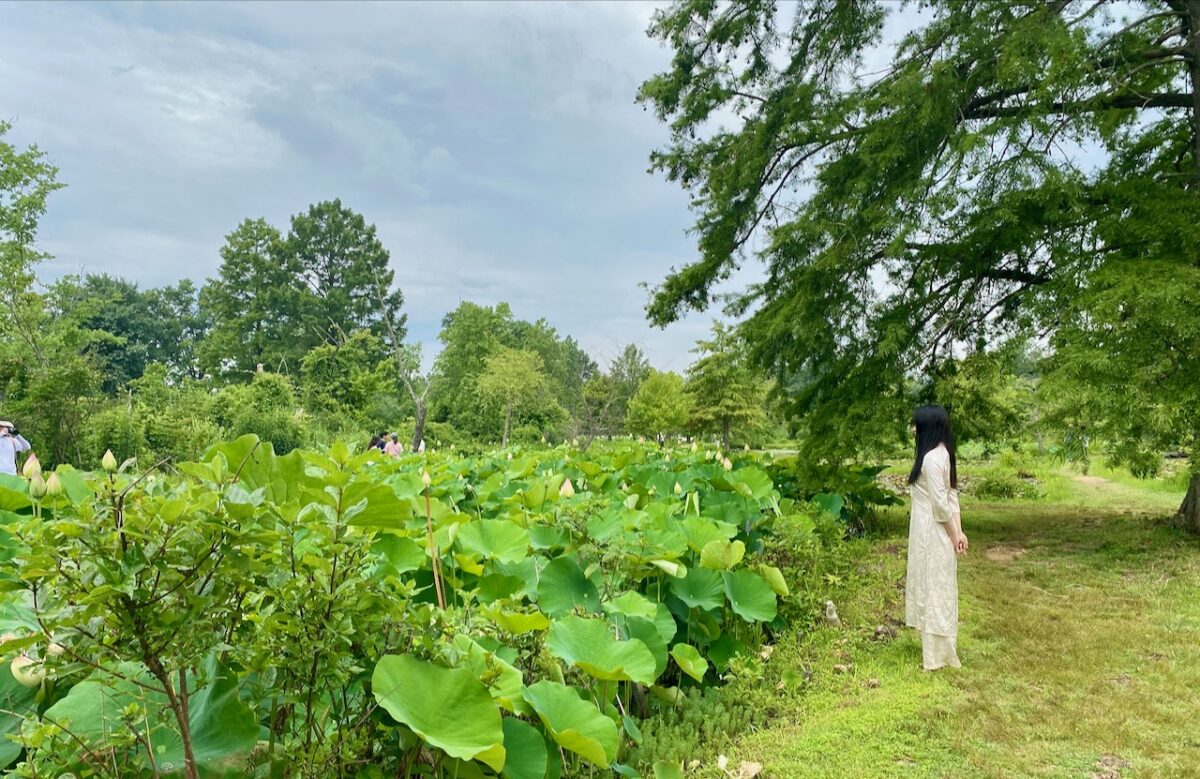
Meditating on the Lotus Blooms: In Hinduism, the lotus represents spiritual enlightenment, beauty, fertility, purity, prosperity and eternity. It is said that there’s a lotus flower in every Hindu’s heart, and that when this lotus blooms, the person achieves enlightenment: Glynn Wilson
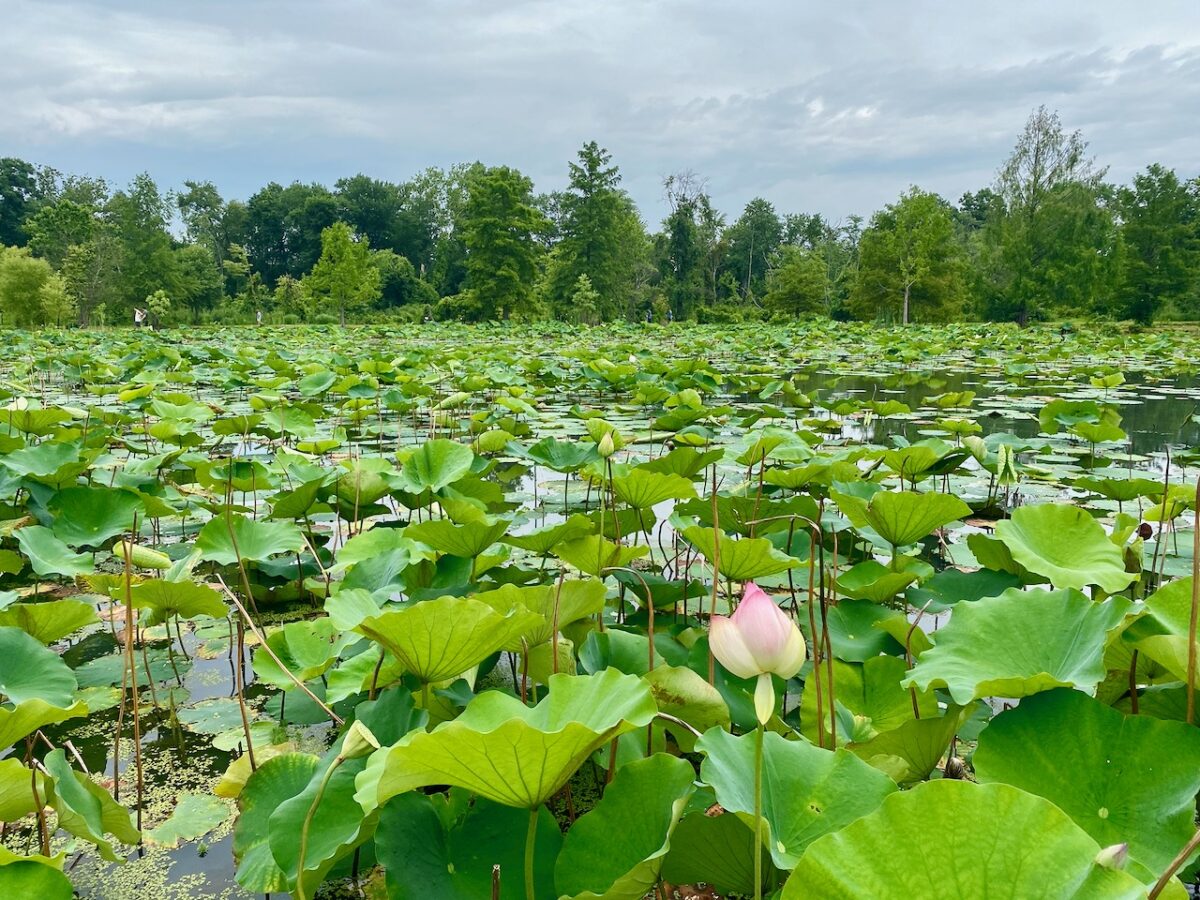
These Lotus flowers in the ponds of Kenilworth Park and Aquatic Gardens are from famous Lotus seeds germinated in the 1950s after being under a dry lake bed in China for 800 years, according to the National Park Service: Glynn Wilson

These Lotus flowers in the ponds of Kenilworth Park and Aquatic Gardens are from famous Lotus seeds germinated in the 1950s after being under a dry lake bed in China for 800 years, according to the National Park Service: Glynn Wilson
___
If you support truth in reporting with no paywall, and fearless writing with no popup ads or sponsored content, consider making a contribution today with GoFundMe or Patreon or PayPal. We just tell it like it is, no sensational clickbait or pretentious BS.



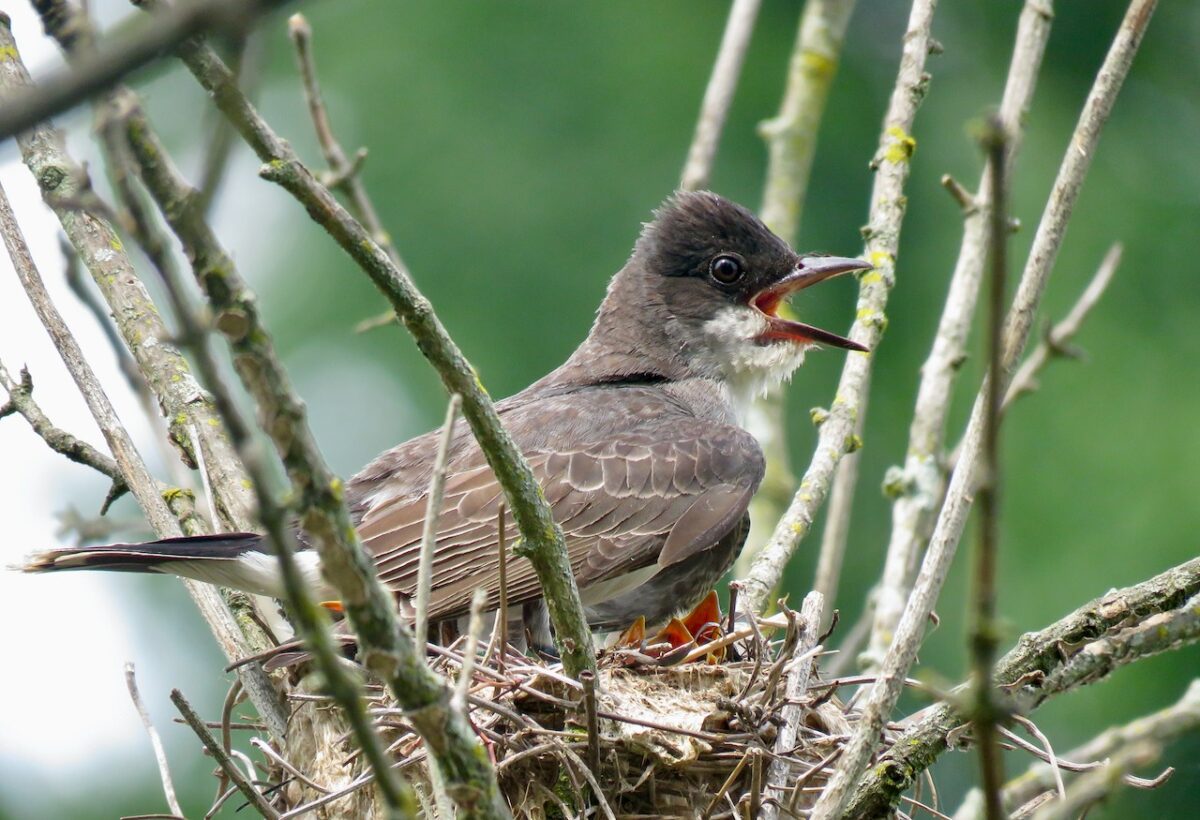
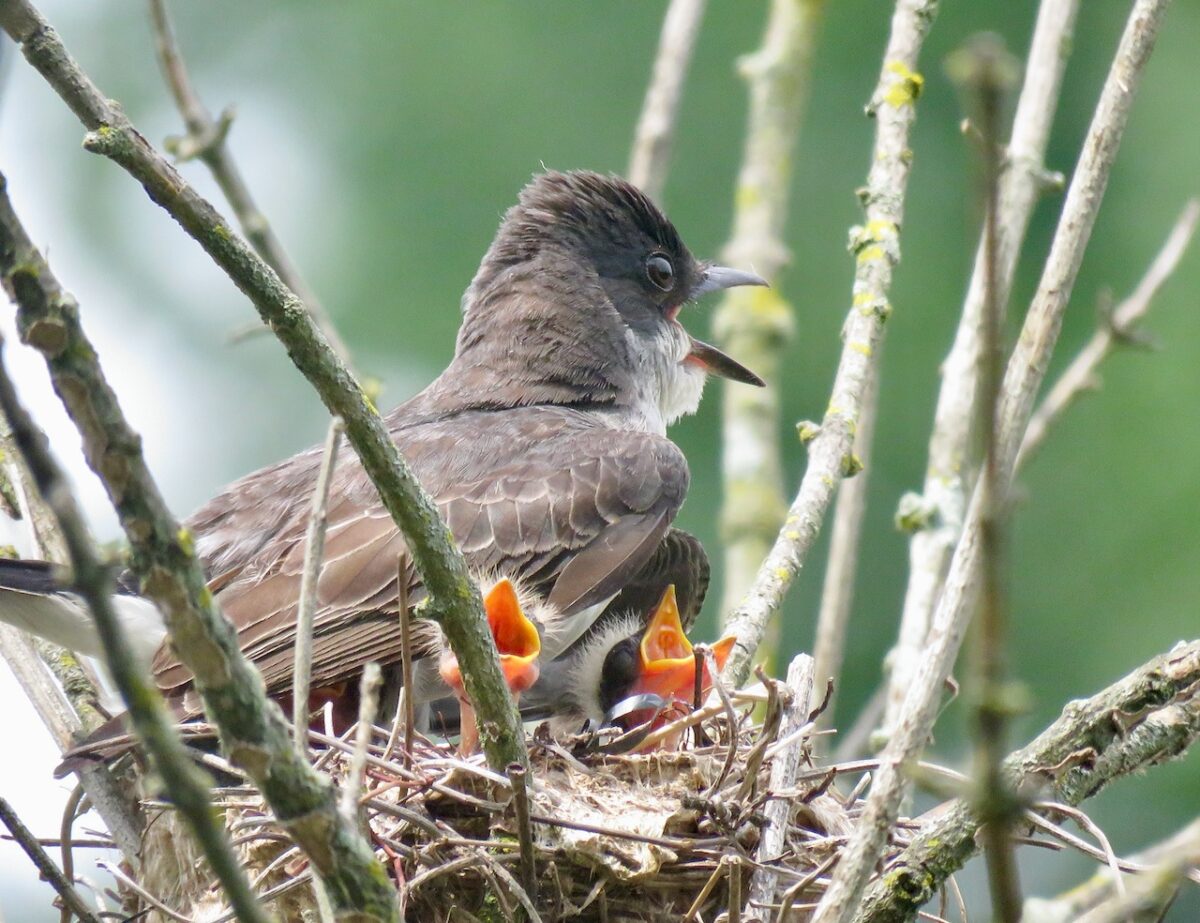
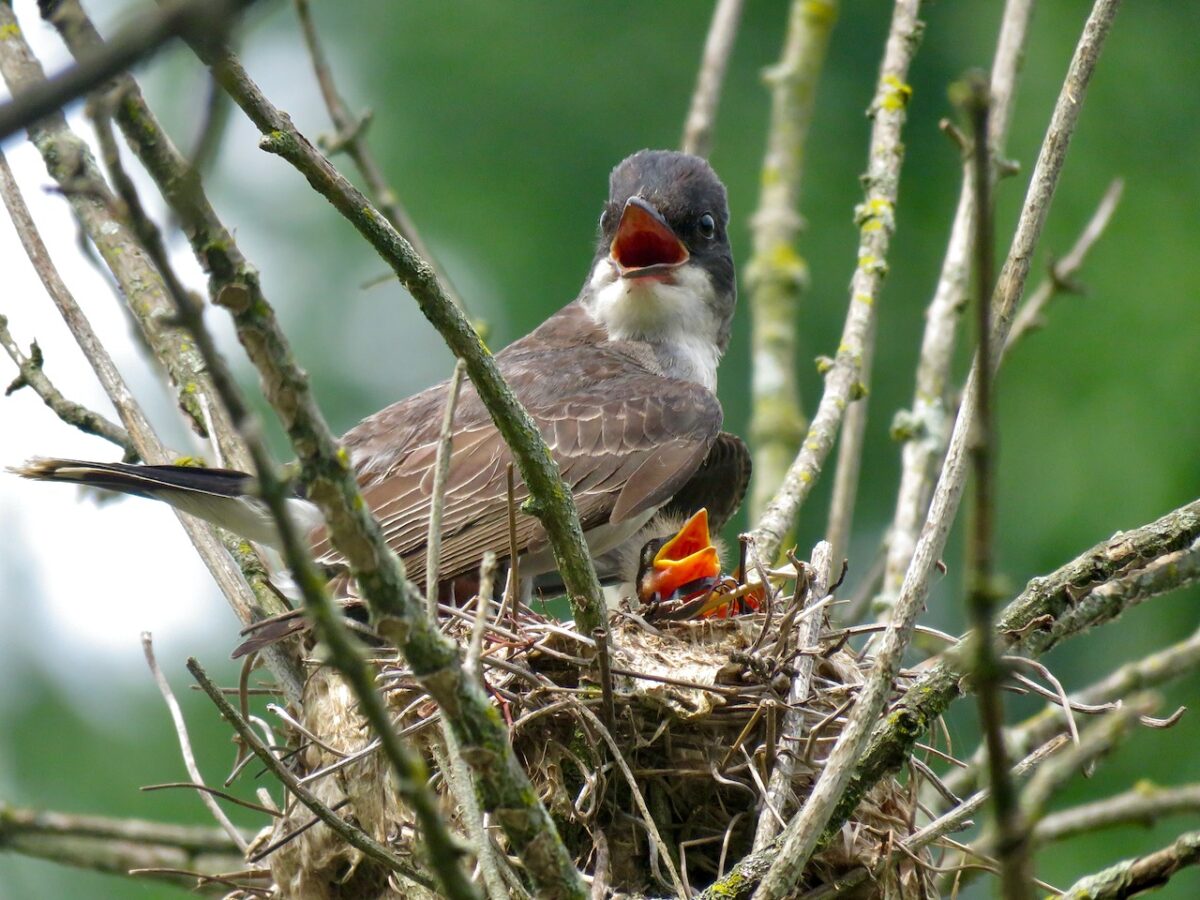
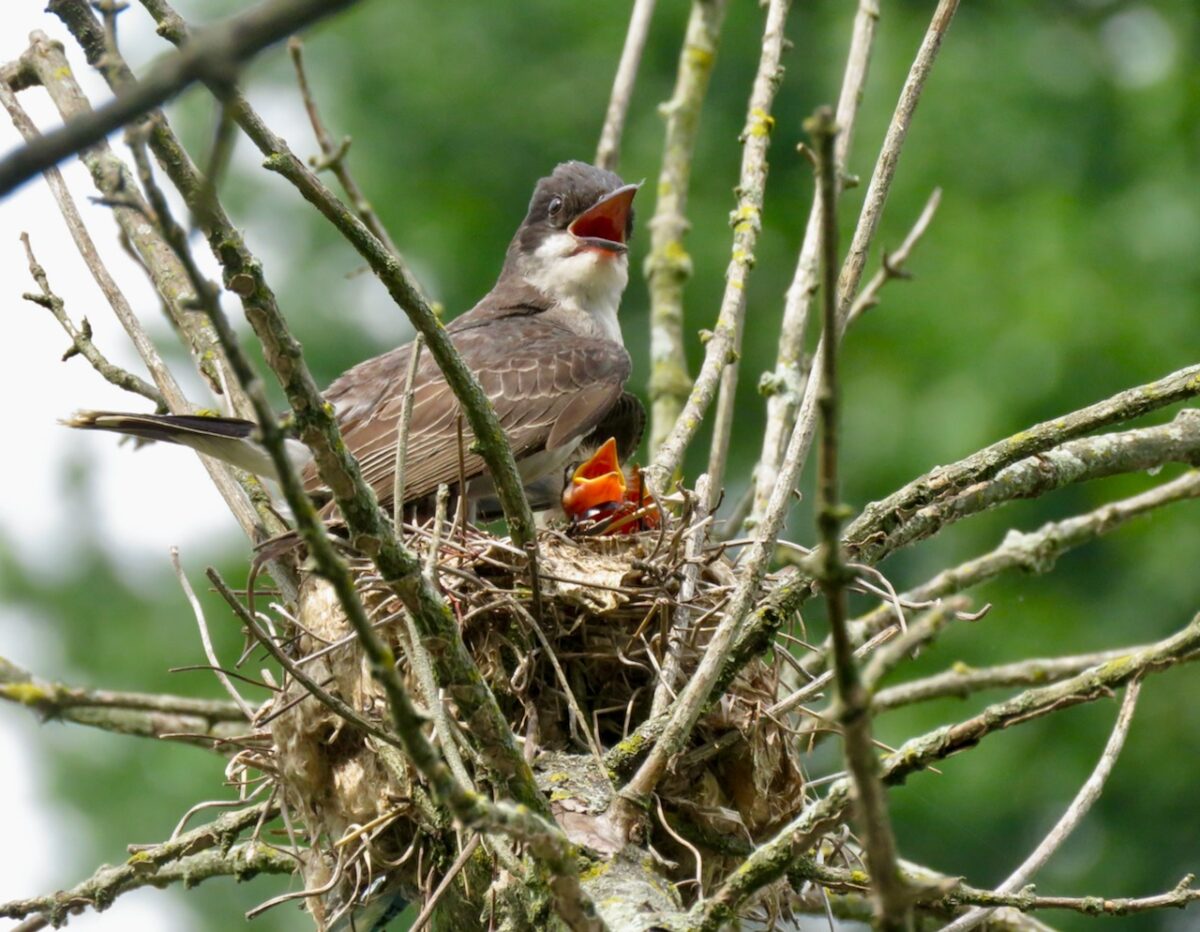
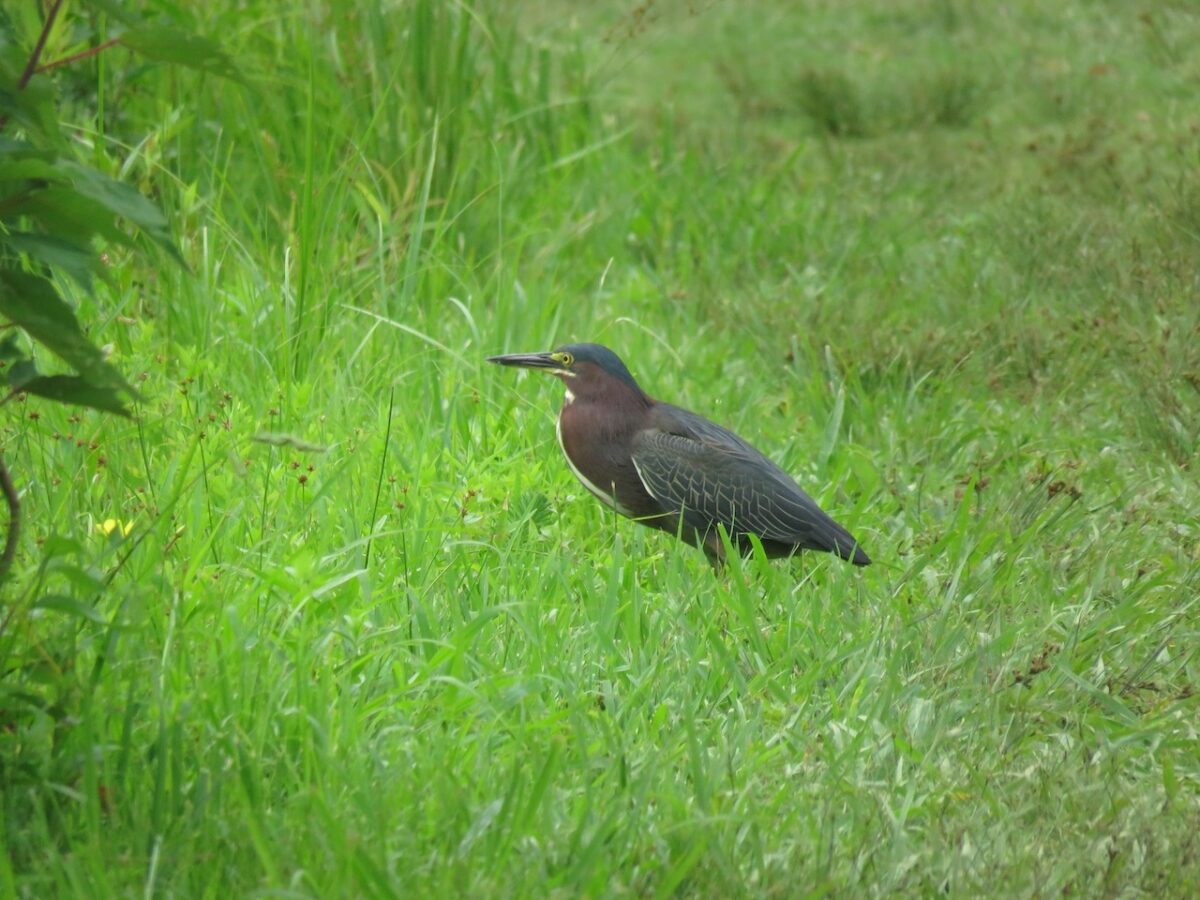
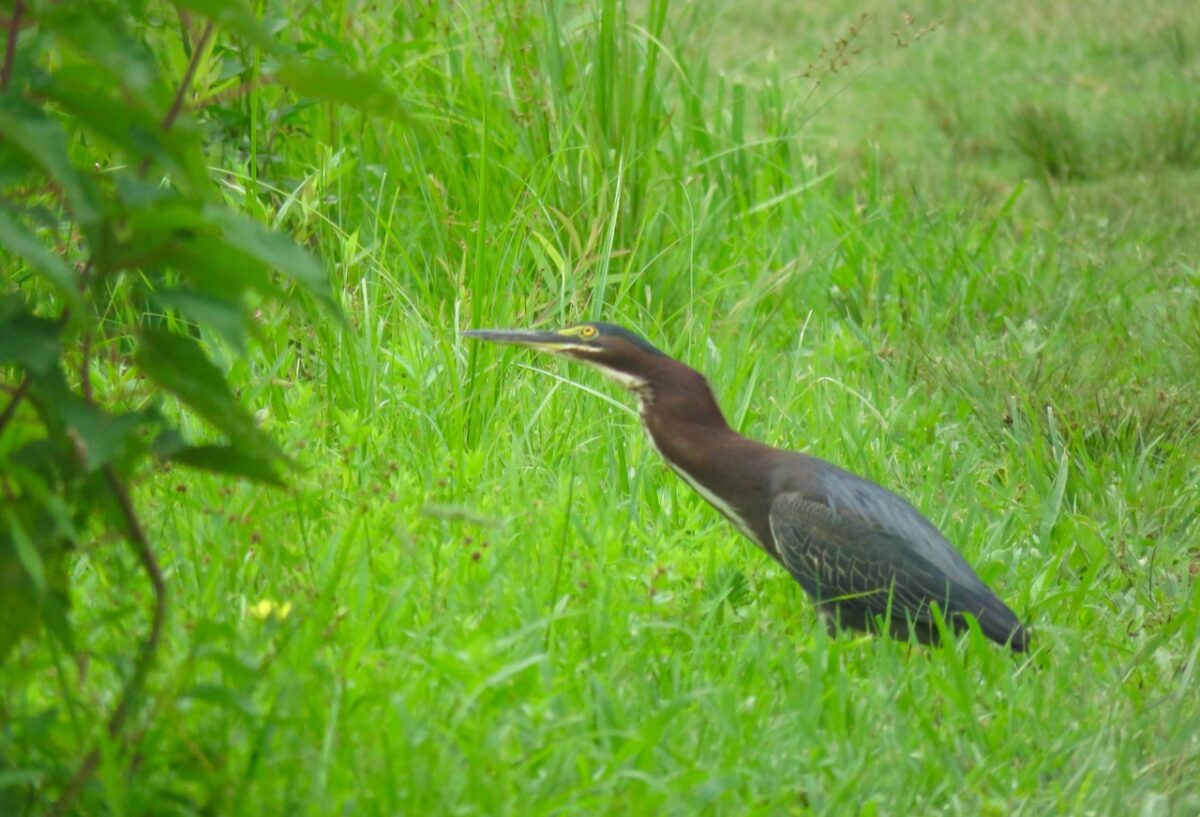












Visited Kenilworth Gardens and on my last visit.
The Bonsai House @ US Arboretum was fantastic!